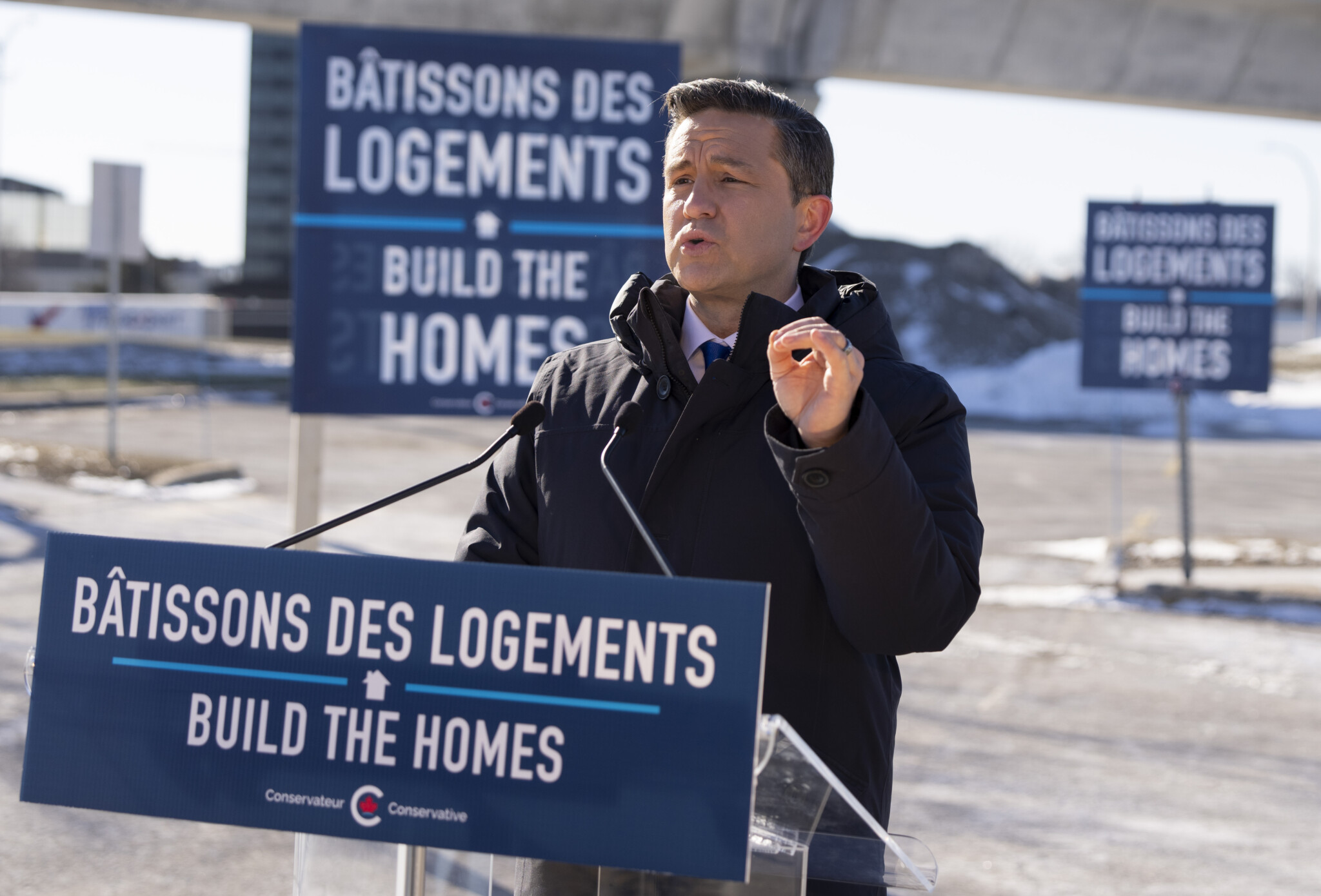Pierre Poilievre’s proposal to eliminate the GST for newly constructed homes selling for under $1 million is the boldest middle-class housing proposal released to date from any federal political party. It will put $4 billion back into the pockets of homebuyers each year. It’s not a perfect plan, as $1 million is still too low to cover even entry-level family-sized housing in Toronto and Vancouver. But it will unambiguously make new middle-class family housing more affordable and abundant.
The Poilievre plan would put up to $50,000 into the pocket of the buyer of a newly constructed home by revamping the existing GST New Housing Rebate. The current rebate, which has not been updated since 1991, rebates buyers of newly constructed homes who are Canadian residents and planning to use the property as a primary residence 36 percent of the GST they pay on a home valued under $350,000 to a maximum rebate of $6,300.
Buyers of a home priced between $350,000 and $450,000 receive a partial rebate, and buyers of a home priced over $450,000 receive nothing, which is the case for most new homes sold in Canada. Under the Poilievre plan, eligible homebuyers receive a full 100 percent of their GST paid back on any home priced at $1,000,000 or less. Homes priced over $1,000,000 receive no rebate.
Enhancing the rebate will not only make homes more affordable by essentially giving a 5 percent discount, but it will also increase the number of homes built. At any given time, there is always a set of housing projects that are on the borderline of economic viability, where some get built, and some do not. By reducing costs by 5 percent, it pushes more of these projects into being viable, causing them to be built.
This push into viability is particularly needed for the condo market, where pre-construction sales have all but dried up in both the Greater Toronto and Greater Vancouver markets. Critics of this move will suggest that builders will absorb the benefits of this rebate through higher pre-tax prices.
While it is true that pre-tax prices might rise somewhat, this rise creates the incentives for more homes to be built. The Conservatives estimate that the enhanced rebate will cause an additional 30,000 homes a year to be built. This figure is not an unreasonable estimate, given the size of the rebate.
The plan is not without its drawbacks. Although rebating 100 percent of GST paid is bold, the $1 million cutoff means that most newly constructed starter family-sized homes in the Toronto and Vancouver markets will not be eligible for a rebate since very few sell for under this amount. Phasing the rebate out between $1 million and $1.5 million, rather than a hard cutoff at $1 million, would address this shortcoming, though it would increase the cost of the proposal by 10 percent.
The biggest challenge for any tax cut is paying for it. Our GST New Housing Rebate Costing Calculator estimates the cost of the rebate to be $4.5 billion a year.
However, this cost could be considerably lower depending on how a Poilievre government deals with the input tax credits builders receive on the HST they pay on materials. The Conservatives propose paying for it by eliminating a number of housing programs, including the Housing Accelerator Fund and the Canada Housing Infrastructure Fund.
Cancelling these programs would be a mistake. Conservative criticisms of these programs have merit. Some municipalities have been wholly disregarding their requirements; for example, the infrastructure fund sensibly requires some municipalities to freeze development charges. The City of Ottawa has blatantly disregarded this requirement by hiking development charges twice in the last six months, causing them to rise by over 20 percent.
The core idea behind these programs, however, is sound. Municipalities need infrastructure money to build housing-related infrastructure, but in return, municipalities should create the regulatory conditions to allow for new housing construction. Eliminating these programs is throwing the baby out with the bathwater, as they can be reformed. Savings can be found elsewhere, such as not implementing the Bloc’s proposed changes to Old Age Security.
If the Conservatives introduced a phase-out to $1.5 million to cover more homes in the Greater Toronto and Greater Vancouver areas and found an alternative to cutting much-needed housing programs to finance the rebate, this would be a near-flawless policy. But as it stands right now, it is still a bold and much-needed measure. We hope this creates the conditions for a race to the top, with other parties releasing bold housing policies in response.











